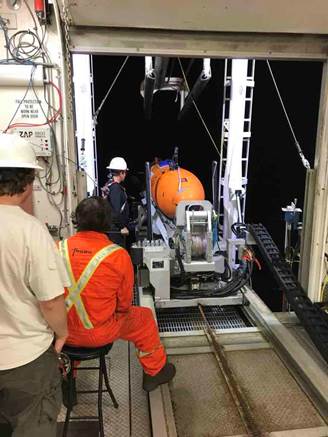
Breaking News
 Alternative Ways to Buy Farmland
Alternative Ways to Buy Farmland
 LED lights are DEVASTATING our bodies, here's why | Redacted w Clayton Morris
LED lights are DEVASTATING our bodies, here's why | Redacted w Clayton Morris
 How My Youtube Channel Makes Money
How My Youtube Channel Makes Money
Top Tech News
 Travel gadget promises to dry and iron your clothes – totally hands-free
Travel gadget promises to dry and iron your clothes – totally hands-free
 Perfect Aircrete, Kitchen Ingredients.
Perfect Aircrete, Kitchen Ingredients.
 Futuristic pixel-raising display lets you feel what's onscreen
Futuristic pixel-raising display lets you feel what's onscreen
 Cutting-Edge Facility Generates Pure Water and Hydrogen Fuel from Seawater for Mere Pennies
Cutting-Edge Facility Generates Pure Water and Hydrogen Fuel from Seawater for Mere Pennies
 This tiny dev board is packed with features for ambitious makers
This tiny dev board is packed with features for ambitious makers
 Scientists Discover Gel to Regrow Tooth Enamel
Scientists Discover Gel to Regrow Tooth Enamel
 Vitamin C and Dandelion Root Killing Cancer Cells -- as Former CDC Director Calls for COVID-19...
Vitamin C and Dandelion Root Killing Cancer Cells -- as Former CDC Director Calls for COVID-19...
 Galactic Brain: US firm plans space-based data centers, power grid to challenge China
Galactic Brain: US firm plans space-based data centers, power grid to challenge China
 A microbial cleanup for glyphosate just earned a patent. Here's why that matters
A microbial cleanup for glyphosate just earned a patent. Here's why that matters
 Japan Breaks Internet Speed Record with 5 Million Times Faster Data Transfer
Japan Breaks Internet Speed Record with 5 Million Times Faster Data Transfer
The Race to Send Robots to Mine the Ocean Floor

The blobs are not rocks, but naturally-occurring metallic nodules that could one day yield metal deposits of cobalt, manganese, and nickel—not to mention scarce rare earth minerals.
As worldwide demand rises for electric vehicle batteries and wind turbines, along with next generation technologies and weapon systems, demand for these metals has taken off. And the seabed is a prime target for those mining operations. Of course, it's no small feat to bring these potato-sized nodules from the bottom of the remote Pacific Ocean, and then sail them to a processing plant where the metals can be extracted.
But leaders of Canada-based mining company DeepGreen Metals and its subsidiary NORI (Nauru Ocean Resources Inc.) think they have figured out how to harvest the nodules without wrecking the deep ocean habitat—and make a profit at the same time.

 No Excuses: Throw A Party!
No Excuses: Throw A Party!


